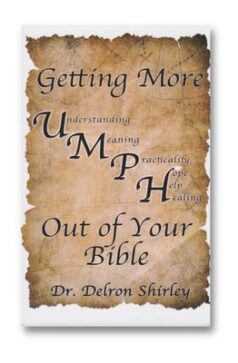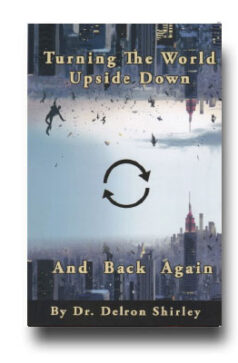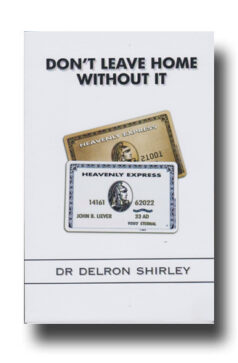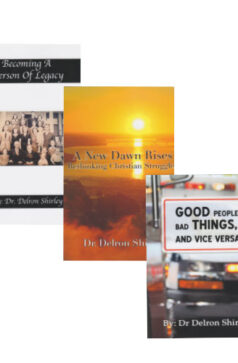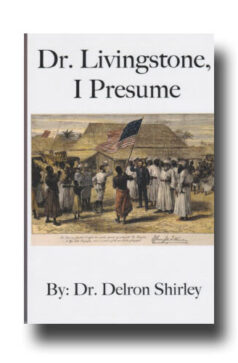INclude
make part of a whole or setcomprise
or contain as part of a whole
And when the queen of Sheba heard of the fame of Solomon concerning the name of the LORD, she came to prove him with hard questions. And she came to Jerusalem with a very great train, with camels that bare spices, and very much gold, and precious stones: and when she was come to Solomon, she communed with him of all that was in her heart. And Solomon told her all her questions: there was not any thing hid from the king, which he told her not. And when the queen of Sheba had seen all Solomon’s wisdom, and the house that he had built, And the meat of his table, and the sitting of his servants, and the attendance of his ministers, and their apparel, and his cupbearers, and his ascent by which he went up unto the house of the LORD; there was no more spirit in her. And she said to the king, It was a true report that I heard in mine own land of thy acts and of thy wisdom. Howbeit I believed not the words, until I came, and mine eyes had seen it: and, behold, the half was not told me: thy wisdom and prosperity exceedeth the fame which I heard. Happy are thy men, happy are these thy servants, which stand continually before thee, and that hear thy wisdom. Blessed be the LORD thy God, which delighted in thee, to set thee on the throne of Israel: because the LORD loved Israel for ever, therefore made he thee king, to do judgment and justice. (I Kings 10:1-9)
Throughout our study so far, we have relied fairly heavily on the teachings of King Solomon and have drawn upon his testimony as an example of a man who had grasped hold of true divine wisdom about finances. However, in this passage, there is another “in” factor that might be easy to overlook — he was inclusive when distributing his resources. Notice the repeated reference to his servants — and keep in mind that these observations were not made by someone “just off the farm” whose jaw was dropping at the very sight of the king’s palace; rather, these are the words of royalty who was accustomed to all the pomp and splendor of the palace. The Queen of Sheba was awestruck by the way Solomon’s servants were seated at the royal banquet table, the regal apparel issued to the palace attendants, the overall happiness of his assistants, and the quality of wise teaching extended to everyone in the monarch’s entourage. In fact, the queen of Sheba was so amazed at the wealth of Solomon’s staff — not just Solomon personally — that she literally fainted. Remember, she was a queen who had a royal court of her own and had likely visited the palaces of many other kings, monarchs, potentates, and sovereigns throughout the East. It was no surprise to her that the royal family and their close ministers would dine sumptuously, dress exquisitely, enjoy a delightful lifestyle, and engage in challenging philosophical discussion and conversation; however, she was also accustomed to seeing the staff barefoot and dressed in simple uniforms — if dressed at all since many slaves in this period of history actually were forced to serve naked. She was certainly not accustomed to seeing servants seated at the ceremonial table; instead, she expected to see them standing at attention watching for every opportunity to attend to the slightest whim of the royal host and his honored guests — watching them as they reveled on sumptuous culinary delights, knowing that customarily they wouldn’t even be allowed to sample the scraps that would be fed to the monarch’s dogs while the servants were given a meager portion of porridge and a crust of bread. The fact that someone from anything short of the “upper crust” of society could possibly be invited to enjoy the king’s treasures was just too radical for her to process. It was unthinkable that such privileges be extended to the business and middle class — much less to the peasants and servants!
When I was in secondary school, there was a clique of students known as the “in crowd.” In fact, there was even a popular song on the radio about being in with the in crowd. Simply stated, everyone else was “out.” The tragic thing is that such exclusiveness is not just limited to snobby high schoolers. We see it in every aspect of human society. In fact, I’ve even witnessed it in the lowest strata of society among the people whom everyone else considered outcasts and rejects. Even those who bear the daily curse of being disdained and scorned have their own little clubs and gangs that despise and reject anyone from outside. What amazed the queen of Sheba was that Solomon — even though he had every right to draw an exclusive circle encompassing a select few for his “in crowd” — had drawn a huge circle that included all his servants as well as his family and special high-ranking friends.
Bill Gates has said that as long as we see a child born in a village of India in a different light from a child born in our own suburb, we are not truly part of the human family. John G. Lake made it even more emphatic when he said that until we treat the poorest, dirtiest beggar with the same care that we would treat the wealthiest, most influential person we could ever hope to meet — the love of Christ has not been formed in us. These two quotes embody the impetus of inclusiveness — an “in” factor that demands that we love the last, the lost, and the least (to use the words of Dr. Lester Sumrall) and the poorest of the poor (as Mother Teresa would state it) as we do our own children and family members. I was sitting with the president of one of the large ministries that does just that when he pointed to a picture of one of the children he sponsors in a ghetto in some third-world country and said with what I could tell was the deepest sincerity of his heart, “I care for that child just like I do for my own granddaughter!” At that point, I knew that I had witnessed what John the Beloved defined as perfected love:
Beloved, let us love one another: for love is of God; and every one that loveth is born of God, and knoweth God…Beloved, if God so loved us, we ought also to love one another. No man hath seen God at any time. If we love one another, God dwelleth in us, and his love is perfected in us… If a man say, I love God, and hateth his brother, he is a liar: for he that loveth not his brother whom he hath seen, how can he love God whom he hath not seen? And this commandment have we from him, That he who loveth God love his brother also. (I John 4:7-21)
Let’s take a few minutes to make sure that we understand the true nature of the love of God that motivates us to give and actively care for others. Even though in a previous chapter we saw a few examples of individuals who lived as misers so that they could amass a fortune to leave to charitable works at their death, the scripture does not advocate that sort of self-abasement. Even though Paul made the choice to live a self-sacrificing life, he boldly taught that such a lifestyle was not a requirement. (I Corinthians 9:1-14) In II Corinthians 9:10, he quoted from the prophet Isaiah (verse 55:10) stating that God would give both seed to sower and bread to eater. The bounty of God allows that we have enough for both our own personal needs and sufficiency beyond that to give to every good work (verse 8) and to take care of all the needs of the saints (verse 12).
At dinner after a major fundraising event to help finance a huge humanitarian project, one of the wealthy businessmen backing the project reached across the table to take a roll from the breadbasket. When he extended his arm, his shirtsleeve pulled up enough to expose his very expensive wristwatch. At that point, another one of the dinner guests commented on how many children could have been fed with the money that the businessman had spent on his fancy timepiece. Even though such a rude observation didn’t deserve a response, the businessman replied, “You have no idea how many children I had already fed before I bought this watch, and I don’t have to sell my Rolex to feed the hungry.” He had tapped into the “in” factor of inclusiveness that allowed him to include himself as well as the unfortunate souls in poverty. God’s financial system is a both-and — not an either-or — structure. In it, we don’t have to sacrifice our own wellbeing in order to bless others — nor do we have to stand idly by with hardened hearts, deaf ears, blinded eyes, and empty hands as we pass by the needs of others. Nehemiah made it clear that we are to enjoy the blessings of God for ourselves (eat the fat and drink the sweet) while at the same time we are to care for the needs of others (send portions unto them for whom nothing is prepared). (verse 8:10) Yes, Jesus did tell the gentleman that we know of as the rich young ruler to sell everything and give all his resources to the poor (Matthew 19:21, Mark 10:21), but He also promised that in doing so he would obtain treasures in heaven — the kind that don’t rust and can’t be stolen. Furthermore, when the disciples — who had observed the man walk away sadly because he couldn’t bear to part with his possessions — asked Jesus about the incident, He answered, “There is no man that hath left house, or brethren, or sisters, or father, or mother, or wife, or children, or lands, for my sake, and the gospel’s, But he shall receive an hundredfold now in this time, houses, and brethren, and sisters, and mothers, and children, and lands, with persecutions; and in the world to come eternal life.” (Mark 10:29-30) Let’s leave the “with persecutions” part for another book, but notice that the heavenly treasure wasn’t just for the world to come; it could be cashed in during this lifetime as well!
Jesus was a very inclusive person; He left out no one who was willing to be come to Him — publicans, sinners, prostitutes, gentiles, and the list goes on and on. (Matthew 9:10-11, 11:19, 21:32; Mark 2:15-16; Luke 5:29-30, 7:34, 15:1, 19:2; John 4:9, 4:39-40) He also taught us to do the same thing. (Luke 10:30-37, Matthew 25:31-46) Two quick stories can help us grasp the relationship of including others with the overall picture of God’s program for our finances. The first is set in the island nation of Sri Lanka where a friend of mine runs a feeding and training center for children from the slums. When one little boy failed to show up several days in a row, my friend ventured into the village to find the lad. When he came to the boy’s hut, he found the boy lying on the floor wrapped in a blanket in a near comatose condition. My friend sternly questioned the boy’s mother as to why she had not taken the boy to the clinic, especially since she knew that the center would cover any medical costs that she would incur. Her response was that she didn’t have the three rupees — equivalent to about ten cents — she needed for the bus fare to get him to the hospital. The missionary valiantly scooped up the boy and rushed him for medical attention. The lad’s life was saved, but he did lose his eyesight because of the delay in getting treatment. The story would be tragic enough if it were to end there, but there is an epilogue that brings it even closer to home. When my friend was back home in the US a few months later, he noticed a young American boy drop a dime on the street, stop and look at it on the ground, and then walk on without even bending over to pick it up. As the missionary watched the young American consider the coin not worth the effort to pick up, his heart broke thinking of how that same dime could have saved the young Sri Lankan boy’s eyesight. The next story originated in a leprosy center in another Asian country. When an American tourist came to visit the clinic, he saw a young nurse carefully bandaging the grotesque sores on one of the patients. Unable to control his sudden emotion, he blurted out, “I wouldn’t do that for a million dollars!” The young medical aide looked up and responded, “Sir, neither would I; but I’ll do it for Jesus.” The key to inclusion is to always value others rather than money and to determine the value we place on others by seeing them as if they were Jesus Himself — at which point, there will be no limits on how much we will give or do to include them.
Then said he also to him that bade him, When thou makest a dinner or a supper, call not thy friends, nor thy brethren, neither thy kinsmen, nor thy rich neighbours; lest they also bid thee again, and a recompence be made thee. But when thou makest a feast, call the poor, the maimed, the lame, the blind: And thou shalt be blessed; for they cannot recompense thee: for thou shalt be recompensed at the resurrection of the just. (Luke 14:12-14)
I have two very dear friends who are living testimonies to the power of inclusion. Kevin and Rachel were homeless drug addicts on the streets of New York City. They spent their days panhandling to get enough cash for their next fix. At night, they would sleep in abandoned cars or derelict buildings; sometimes, they would jimmy the locks on apartment buildings so they could slip inside and sleep in the stairwell; other times, they curdled up for the night among the tombstones in cemeteries. Often they slept in the back allies of the city in what Kevin dubbed his “cardboard condo” — a three-room “house” made from a washing machine carton, a dryer crate, and a refrigerator container. They scavenged for food in dumpsters and trash cans because they preferred to use every cent of the money that they could get their hands on for more dope rather than to take care of their own basic needs of food, shelter, and hygiene. That was until the day that someone at a soup kitchen included them and asked them to stick around for a church service. He then drew them in even tighter by giving them a warm place to stay and helping them get into and through a rehabilitation program. Today, Kevin and Rachel are college graduates, have their own home on four acres of land on a beautiful wooded lot nestled in the Colorado mountains that they share with deer and bears. But most of all, they run a feeding ministry that feeds hundreds of unfortunate families each week, bringing them the tangible love of Jesus. A skilled handyman, Kevin is always actively involving himself in the lives of those people he reaches out to by repairing their plumbing, patching their walls, or even totally rebuilding their homes. Today, Kevin and Rachel are a world away from their “cardboard condo,” all because of the inclusion factor — someone dared to include them and now they stretch their arms wide to include anyone who will allow them to love them. When I am with Kevin and Rachel, my heart erupts with the words of Proverbs 11:28, “He that trusteth in his riches shall fall; but the righteous shall flourish as a branch.” From dumpsters and appliance crates, they certainly didn’t have any physical riches to trust in, but they learned the righteousness of loving and including others until their lives have born flourishing fruit.
On the other hand, those who don’t learn this “in” factor will fall. At this point, I’m reminded of an incident involving an individual from the totally opposite end of the socio-economic spectrum. A very wealthy man had a dream of being in hell, trying to pay the devil to get out. Every time he offered more money, Satan laughed harder. He had trusted in money because it bought him anything he wanted in this life, but he found that it failed him in the next one. He should have learned a lesson from the sheep on Jesus’ right hand who included the needy and won for themselves the joy of the Lord. (Matthew 25:34-40)
For what shall it profit a man, if he shall gain the whole world, and lose his own soul? (Mark 8:36)
Closely akin to inclusiveness is the “in” factor of INtegrity (moral uprightness, state of being whole and undivided, quality of being honest and having strong moral principles). Integrity means that we have included all of ourselves: body, soul, and spirit. What we think on the inside is exactly the way we act on the outside. We don’t camouflage our true motives or disguise our real motivations for profit. Someone once said, “Money is like a chameleon; it takes on the color of its owner’s heart.” If we have a hidden agenda in our hearts, there will never be any true profit in our lives no matter how much money we gain. Our money will produce in our lives according to the nature in the hearts that drew it to us. “The wicked worketh a deceitful work: but to him that soweth righteousness shall be a sure reward.” (Proverbs 11:18) True integrity will lead us to act on behalf of others to the point that we are willing to accept INjury (harm, damage, destruction, impairment) in our own dealings in order to be fair to others and bring blessing to them. “In lowliness of mind let each esteem other better than themselves.” (Philippians 2:3) A contractor made a significant mistake in his measurements when calculating the estimate for the job he was doing at my house, making him lose money on the project due to the extra materials and labor that he had not accounted for. Only after the job was completed, did I discover that he had borne the extra expense and had not come back to me asking for more money. When I asked him about the mistake, he explained that as a Christian he would rather lose money that to jeopardize his integrity. I, of course, explained that as a Christian I could not take advantage of his error, and we eventually came to an equitable agreement that benefited both of us. Even if I had never discovered the error and he had accepted the loss, he would have gained much more than the income in that he would have prospered and profited in his integrity. In the story of Joseph, we see a powerful example of an individual who refused to compromise his integrity by refusing to yield to Potiphar’s wife’s advances. Even though he suffered in the prison for several years because of this act of integrity, he eventually found himself in charge of the greatest conglomerate of resources in the world. Even though we are never told what happened to the poor widow who gave her last mite in the collection basket (Mark 12:42), we can be sure that the integrity of her heart — which, by the way is the significance of the story because Jesus deliberately contrasted her with the religious leaders who lacked integrity in taking offerings from widows (verse 40) — was rewarded in her own lifetime in addition to the fact that her deed has been memorialized for all of time and eternity. Let’s close this chapter by taking a quick look at the Macedonians who determined to live by the “in” factor of inclusiveness, manifest through integrity and injury. In II Corinthians 8:1-5, we read of how in their “great trial” and “deep poverty” they experienced “abundant joy” and “rich liberality” — words that don’t naturally fit together except in God’s kingdom where these “in” factors totally rearrange normal economics. In verse four, Paul says, “Praying us with much intreaty that we would receive the gift.” Apparently, someone was telling them that they shouldn’t (or couldn’t) give; however, they refused to give up. The end result? They found the key to abundant live in Christ:
But as touching brotherly love ye need not that I write unto you: for ye yourselves are taught of God to love one another. And indeed ye do it toward all the brethren which are in all Macedonia: but we beseech you, brethren, that ye increase more and more. (I Thessalonians 4:9-10)



